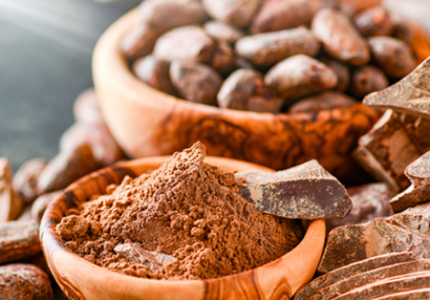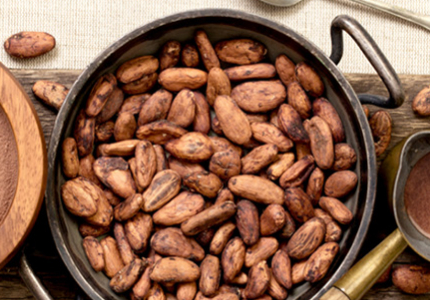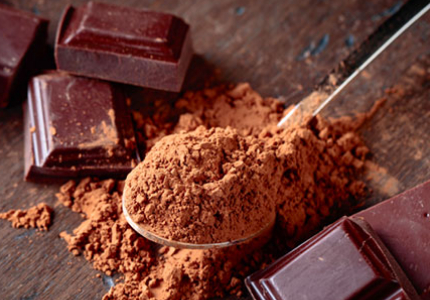Cacao, the fundamental ingredient in chocolate and cocoa products, has gained popularity not only for its rich, indulgent taste but also for its potential health benefits. While it's widely recognized for its antioxidant properties and other nutritional advantages, questions about its acidity or alkalinity often arise. To explore this topic in detail, we'll delve into the world of cacao and attempt to answer questions like "Is cacao an alkaline food?" and "What is the pH of cacao?" In this discussion, we'll also consider the alkalinity of cacao powder and compare it to another popular beverage: coffee.
The popularity of alkaline foods, commonly referred to as alkaline-forming foods, has grown in recent years due to the belief that they help balance the body's pH levels. Cacao, in its various forms, including alkaline cocoa powder, is often regarded with interest in this context.
Alkaline cocoa powder is obtained through a specific processing method that involves treating cacao with alkaline substances like potassium carbonate. This process, also known as "dutch processing," is primarily employed to improve the flavor, reduce bitterness, and darken the color of the cacao. While this process results in a shift towards alkalinity, it's essential to understand that the alkalinity of the cacao doesn't directly correlate with its taste or health benefits.
Alkalized cocoa powder, such as that supplied by Skyswan Alkalized Cocoa Powder Supplier, typically has a pH that ranges from 7 to 7.5, making it slightly alkaline. This alkalinity can be appealing to those who follow an alkaline diet or are looking for a milder, less acidic cocoa product.
However, it's important to note that most cacao products that we consume, such as chocolate and standard cocoa powder, undergo various processing steps, including roasting and alkalization. The alkalization process alters the alkaline properties of cacao, making it slightly acidic, with a pH ranging from 5 to 6.
The pH of alkalized cocoa powder depends on the specific product and the extent of alkalization it has undergone. Alkalised cocoa powder, such as the products supplied by Skyswan, one of the leading alkalized cocoa powder suppliers, A, typically has a pH ranging from 7 to 7.5. This places it in the category of slightly alkaline foods.
The key difference between alkalized cocoa powder and natural, non-alkalized cacao lies in the alkalization process itself. During this process, alkaline substances are used to modify the cacao's pH and reduce its natural acidity. As a result, alkalized cocoa powder is smoother, less bitter, and often favored in recipes where a more mellow cocoa flavor is desired.
Cocoa beans, the primary source of cacao, naturally have a pH that is slightly acidic. This natural acidity is primarily attributed to the presence of organic acids such as acetic acid and citric acid within the beans. These acids contribute to the characteristic flavor profile of cacao and chocolate.
While cocoa beans are naturally acidic, it's important to remember that the pH of the final cacao product can vary significantly based on the processing methods used. The alkalization process, as mentioned earlier, can help neutralize some of the acidity, making the resulting cacao products less acidic.
The degree of acidity in cocoa beans, coupled with the processing methods employed, contributes to the diverse flavor profiles found in different types of chocolate. For example, dark chocolate often contains a higher percentage of cocoa solids, which can contribute to a more pronounced acidic or bitter taste, while milk chocolate typically has a milder, sweeter flavor due to the added milk solids and sugars.
Cacao and coffee are both popular beverages with unique flavor profiles and potential health benefits. When it comes to acidity, they exhibit differences worth noting. Coffee, particularly when brewed, is known for its acidity. Coffee's pH typically ranges from 4.5 to 5.5, which places it in the mildly acidic category. This natural acidity is a key factor in coffee's bright, tangy, and sometimes fruity flavors.
In contrast, as discussed earlier, alkalized cocoa powder is slightly alkaline, with a pH range of 7 to 7.5. While it is not as acidic as coffee, it is essential to recognize that the perceived acidity of both cacao and coffee can also be influenced by factors like the roast level, origin, and preparation method.
In summary, cacao, when alkalized, becomes slightly alkaline, and the resulting alkalized cocoa powder offers a milder, less bitter flavor profile. Cocoa beans themselves are naturally acidic, and cacao's acidity is milder in comparison to coffee. Understanding the differences in alkalinity and acidity of these beloved ingredients can help you appreciate their complex flavors and potential health benefits, especially when choosing alkalized cocoa products from a reputable supplier like Skyswan Alkalized Cocoa Powder Supplier.


